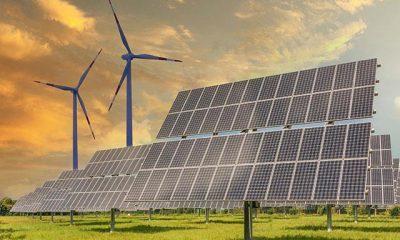Business
South Africa’s Tax Hike Backfires: VAT Increase Plan Doomed from the Start, Economists Warn

South Africa’s shelved 2025 Budget, which proposed raising over R60 billion through a VAT hike, may have been destined to fail from the outset, economists warn. The plan, which aimed to increase the VAT rate from 15% to 17%, faced fierce opposition from the Government of National Unity (GNU) and was ultimately withdrawn. However, analysis reveals that such tax hikes have historically led to significant revenue shortfalls, raising questions about the government’s fiscal strategy.
A History of Overestimated Revenue
According to data compiled by Mpho Molopyane, Chief Economist at Alexforbes, the South African government has consistently overestimated revenue projections over the past decade. This trend is particularly pronounced in years when taxes were increased, often resulting in substantial shortfalls.
For example:
- In 2017/18, the introduction of a 45% top income tax bracket led to a R49 billion revenue shortfall.
- In 2018/19, the VAT hike to 15% resulted in an even larger shortfall of R57 billion.
These were two of the biggest revenue shortfalls in the past decade, outside of the Covid-19 pandemic. “Barring 2021/22 and 2022/23—during the post-Covid commodities boom—revenue outcomes have generally come in lower than initially projected,” Molopyane said.
Why Tax Hikes Backfire
The proposed VAT hike was intended to fund above-inflation increases in government wages, social grants, and frontline services. However, economists argue that such measures often fail to deliver the expected revenue due to several factors:
- Overtaxed Population: South Africans are already heavily taxed, leaving little room for further increases without negatively impacting consumer spending and economic growth.
- Consumer Inflation: Higher VAT rates can push up consumer prices, leading to increased inflation and potentially higher interest rates.
- Economic Behavior: Tax hikes can discourage spending and investment, reducing overall economic activity and tax collections.
“Overall, this points to overestimation bias and raises concerns over fiscal consolidation credibility,” Molopyane noted.
Ballooning Expenditure Risks
While the government tends to overestimate revenue, it often underestimates expenditure. The proposed 2025 Budget projected an increase in main budget revenue by R182 billion and expenditure by R145 billion, aiming to narrow the main budget deficit to 3.2% of GDP by 2027/28.
However, this projection does not account for several risks, including:
- A High Court ruling that the R370 Social Relief of Distress (SRD) grant should be expanded in both qualifying persons and amount.
- Inadequate funding for higher education and the National Health Insurance (NHI).
- Potential permanent suspension of USAID funding for the President’s Emergency Plan for AIDS Relief (PEPFAR).
Conservatively, these risks could add R100 billion to the expenditure side of the budget, further straining fiscal resources.
The Road Ahead
With the 2025 Budget withdrawn, a new budget is being drafted and is set to be tabled on 12 March 2025. However, the National Treasury faces difficult choices.
“It is unclear how they will walk back some of the proposed spending, such as higher wages and additional funding for front-line departments aimed at building a capable state, or how they will raise additional revenue as a VAT increase seems unpalatable,” Molopyane said.
South Africa’s attempt to raise revenue through a VAT hike highlights the challenges of balancing fiscal consolidation with economic growth. Historical data shows that tax increases often fail to deliver the expected revenue, while underestimating expenditure risks exacerbates fiscal pressures.
As the government prepares its new budget, it must navigate these complexities to ensure sustainable economic recovery and social stability. For now, the proposed VAT hike serves as a cautionary tale of the unintended consequences of overtaxing an already strained population.
Follow Joburg ETC on Facebook, Twitter , TikTok and Instagram
For more News in Johannesburg, visit joburgetc.com



























